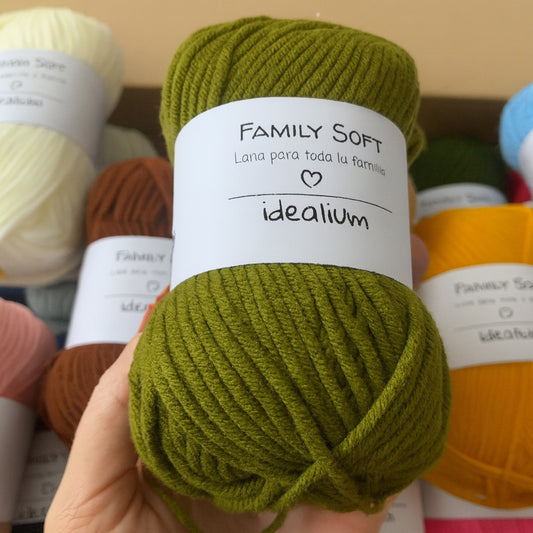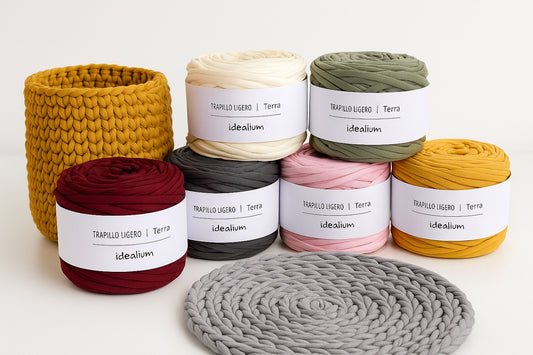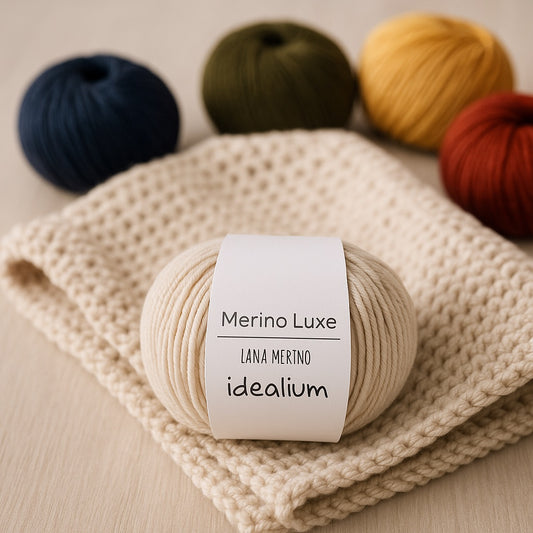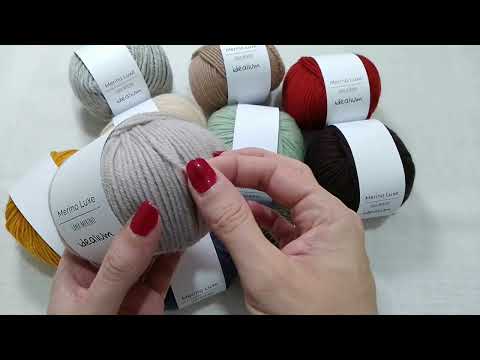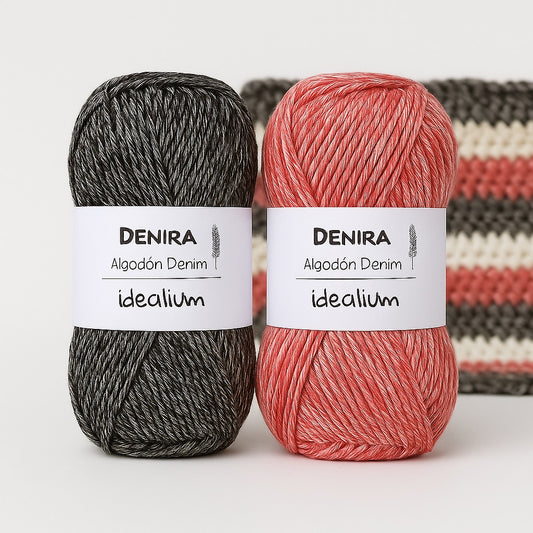
Milk Cotton wool: what it is, how it is made and what to use it for
Share
Milk cotton yarn has become one of the most sought-after fibers in the world of crochet and knitting. Soft, lightweight, and pleasant to the touch, it combines the best of cotton with the warmth of acrylic or protein fibers. In this guide, you'll learn exactly what it is, how it's made, and why so many knitters and crocheters choose it for baby clothes, transitional wear, or family projects.
Table of Contents
What is Milk Cotton wool?
The term Milk Cotton refers to a yarn made from a blend of natural cotton fiber and milk protein (casein) , or, in modern versions, with an ultra-fine, silky-soft acrylic that mimics that softness. The result is a lightweight, breathable, and extremely soft material, ideal for sensitive skin.
Although its name may suggest a pure milk fiber, most of the yarns marketed today as "Milk Cotton" are combinations of cotton and acrylic with a silky finish inspired by the original protein version.

Composition and how it is manufactured
The original milk fiber process emerged in the 1930s: milk protein (casein) was dissolved, processed, and spun into a soft fiber with a natural sheen. Today, the most widespread version combines combed cotton with high-quality micro-acrylic , creating a durable yarn with a creamy feel.
Cotton provides breathability and coolness , while acrylic or casein adds elasticity, strength, and softness . That's why it's considered a "hybrid" fiber: it combines the best of both worlds.
Properties and benefits of Milk Cotton
- Superior softness: glides easily into hands and does not irritate the skin.
- Breathable and lightweight: perfect for transitional weather or mild climates.
- Easy to wash: maintains its shape after washing, without clumping.
- Durable and resistant: withstands daily use and repeated fabrication well.
- Ideal for babies and sensitive skin: it does not itch, does not cause allergies and offers a velvety feel.
Recommended uses and projects
Thanks to its balance of softness, lightness, and strength, Milk Cotton is a very versatile yarn. Some of its most common uses are:
- Baby clothes and blankets: soft, washable and comfortable for everyday use.
- Transitional clothing: sweaters, tops or light crochet or knitted jackets.
- Everyday accessories: scarves, hats and neck warmers that do not irritate the skin.
- Decorative projects: cushions, covers or small sofa throws with a pleasant texture.

How to care for and wash this fiber
- Wash the garments by hand or on a delicate cycle , with cold or warm water.
- Use mild detergent, without harsh bleaches or fabric softeners.
- Dry them flat to preserve the shape and elasticity of the fabric.
- Avoid using a dryer: heat can alter the texture and shine of the yarn.
- If ironing is necessary, do it with a damp cloth and low temperature .
Comparison: Milk Cotton vs cotton or acrylic
| Property | Milk Cotton | 100% Cotton | Acrylic |
|---|---|---|---|
| Touch | Very soft, silky | Fresh and firm | Soft, sometimes more synthetic |
| Elasticity | Medium, pleasant to knit | Low | High |
| Breathability | High | Very high | Average |
| Maintenance | Easy, it doesn't deform | It can shrink | Very easy |
⚠️ Common mistakes when knitting with Milk Cotton
- Using a needle that is too fine: the thread loses its drape and elasticity.
- Do not adjust the tension: it may be loose if you are used to knitting pure cotton.
- Wash with hot water: some types of acrylic or casein may clump together.
- Mix with fibers that shrink, such as pure wool, without making a sample beforehand.
🌸 Final tips to make the most of it
Milk Cotton is the perfect yarn if you're looking for a balance between softness, strength, and lightness . Try it with everyday projects or family garments: you'll see that it's very well suited to crochet, knitting, and even weaving.
And if you want to enjoy that same feeling of comfort with Idealium quality, you'll love our Family Soft skein — an acrylic "milk cotton" type yarn designed for the whole family.
✨ Discover the softness of Family Soft
Our Idealium Family Soft yarn combines the lightness of cotton with the warmth of milk cotton acrylic. Perfect for baby clothes, transitional wear, or family projects.
See Family Soft yarn balls


